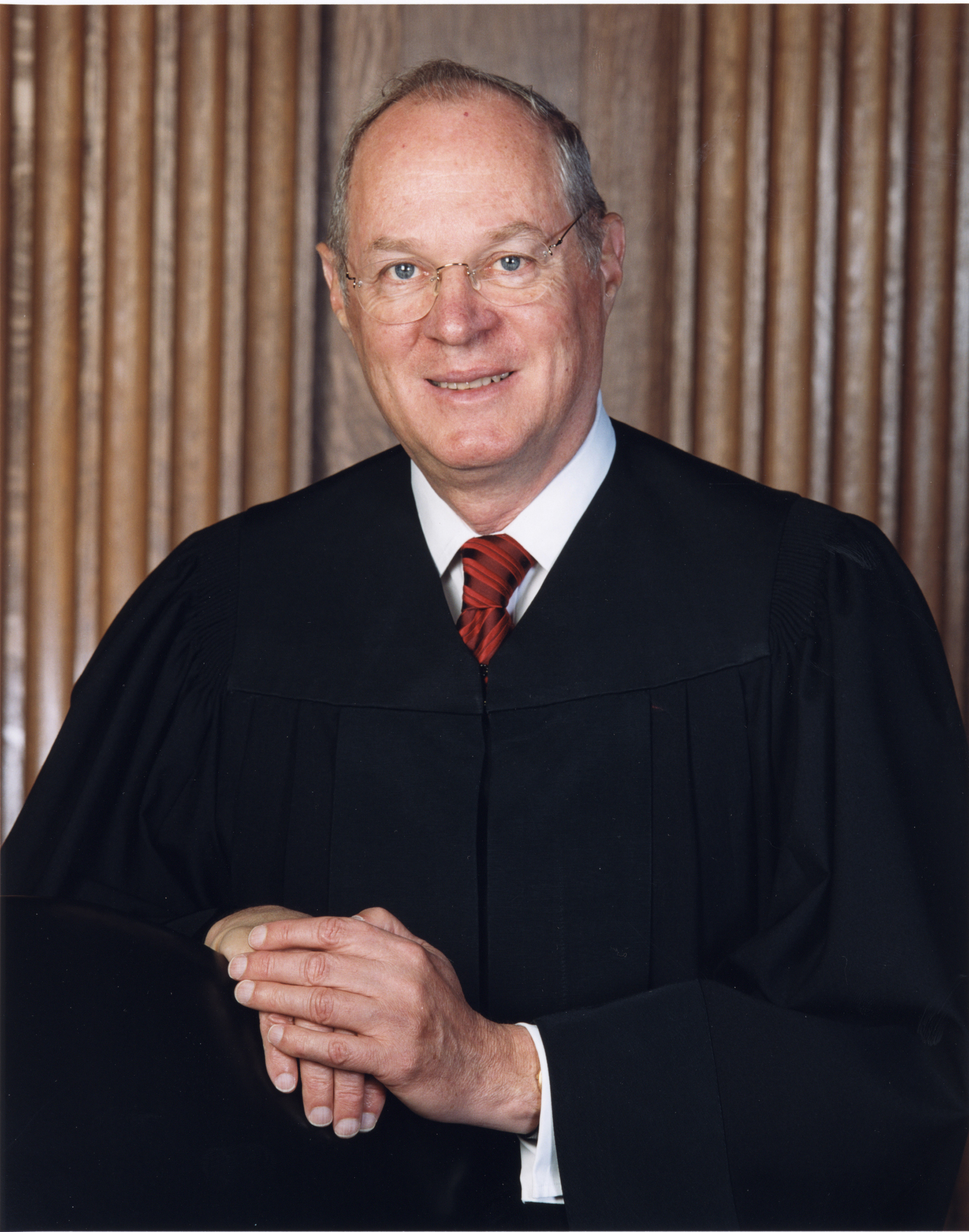Lawrence v. Texas, 539 U.S. 558 http://caselaw.lp.findlaw.com/scripts/getcase.pl?court=us&vol=000&invol=02-102 (26 June 2003).
Anthony Kennedy: Idézetek angolul
Planned Parenthood v. Casey, 505 U.S. 833 http://caselaw.lp.findlaw.com/scripts/getcase.pl?court=US&vol=505&invol=833 (29 June 1992) (joint opinion coauthored with Justices Souter and O’Connor).
Interview: Justices Stephen Breyer and Anthony Kennedy, 1999-11-23, 2006-11-26 http://www.pbs.org/wgbh/pages/frontline/shows/justice/interviews/supremo.html, (Interviewed by Bill Moyers for the Frontline documentary "Justice for Sale").
Ashcroft v. Free Speech Coalition, 535 U.S. 234 (2002) (Opinion of the Court).
“Indeed I do and I admire it. I am a practicing Catholic.”
Alleged response to conservative senator's statement that "I think you know where I stand on abortion" (exchange occurred at White House prior to Justice Kennedy’s nomination). Quoted in [Opinion Journal, Religion and the Court, Wall Street Journal, http://www.opinionjournal.com/editorial/feature.html?id=110007409, 1987 (date of quote) 16 October 2005 (date of article)] Later, Kennedy cast doubt upon that exchange (see p. 91 of 1987 confirmation transcript http://www.gpoaccess.gov/congress/senate/judiciary/sh100-1037/browse.html).
“Dignitary wounds cannot always be healed with the stroke of a pen.”
Obergefell v. Hodges, 576 U. S. ____, (2015), majority opinion.
[Unenumerated Rights and the Dictates of Judicial Restraint, Address to the Canadian Institute for Advanced Legal Studies, Stanford University. Palo Alto, California., http://web.archive.org/web/20080627022153/http://www.andrewhyman.com/1986kennedyspeech.pdf, 24 July 1986 to 1 August 1986, 13] (Also quoted at p. 443 of Kennedy's 1987 confirmation transcript http://www.gpoaccess.gov/congress/senate/judiciary/sh100-1037/browse.html).
Obergefell v. Hodges, 576 U. S. ____, (2015), majority opinion.
“The Constitution doesn't belong to a bunch of judges and lawyers. It belongs to you.”
Interview for Academy of Achievement http://www.achievement.org/autodoc/printmember/ken0int-1 (3 June 2005).
Beller v. Middendorf, 632 F.2d 788, 809-10 (9th Cir. 1980) upholding a Navy discharge for homosexual conduct.
Schuette v. Coalition to Defend Affirmative Action, 572 U. S. ____, (2016), plurality opinion.
Citizens United v. Federal Election Commission, 558 U.S. 310 (2010) (Opinion of the Court).
Bush v. Gore, 531 U.S. 98 http://caselaw.lp.findlaw.com/scripts/getcase.pl?court=US&vol=000&invol=00-949 (12 December 2000).
Schuette v. Coalition to Defend Affirmative Action, 572 U. S. ____, (2016), plurality opinion.
United States v. Alvarez, 567 U. S. ____, *16 (2012).
Interview for Academy of Achievement (3 June 2005).
Quoted in [Richard C. Reuben, Man in the Middle, California Lawyer, October 1992, 35]
Citizens United v. Federal Election Commission, 558 U.S. 50 http://www.law.cornell.edu/supct/html/08-205.ZS.html (21 January 2010).
Citizens United v. Federal Election Commission, 558 U.S. 310 (2010) (Opinion of the Court).
International Society for Krishna Consciousness v. Lee, 505 U.S. 672 http://caselaw.lp.findlaw.com/cgi-bin/getcase.pl?navby=case&court=us&vol=505&invol=672 (concurring opinion) (26 June 1992).
Roper v. Simmons, 543 U.S. 551 http://caselaw.lp.findlaw.com/scripts/getcase.pl?court=US&vol=000&invol=03-633 (1 March 2005).
Stenberg v. Carhart, 530 U. S. 914 http://caselaw.lp.findlaw.com/scripts/getcase.pl?court=US&vol=000&invol=99-830 (28 June 2000) (detailing what he deemed a constitutionally protected alternative to partial-birth abortion).
Roth Lecture, USC Law School (20 November 1998).
Quoted in [George Will, Wrong on All Counts, Washington Post, http://www.washingtonpost.com/wp-dyn/content/article/2005/03/25/AR2005032501595.html, 1992 (date of quote) 6 March 2005 (date of article), B07]
Reported by Terry Carter in California Lawyer magazine (August 1992)
Lawrence v. Texas, 539 U.S. 558 http://caselaw.lp.findlaw.com/scripts/getcase.pl?court=us&vol=000&invol=02-102 (26 June 2003).
Ashcroft v. Free Speech Coalition, 535 U.S. 234 (2002) (Opinion of the Court).
